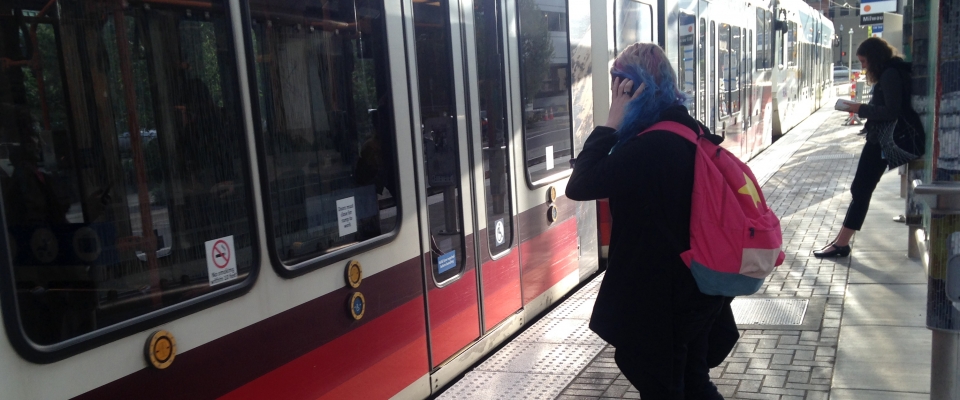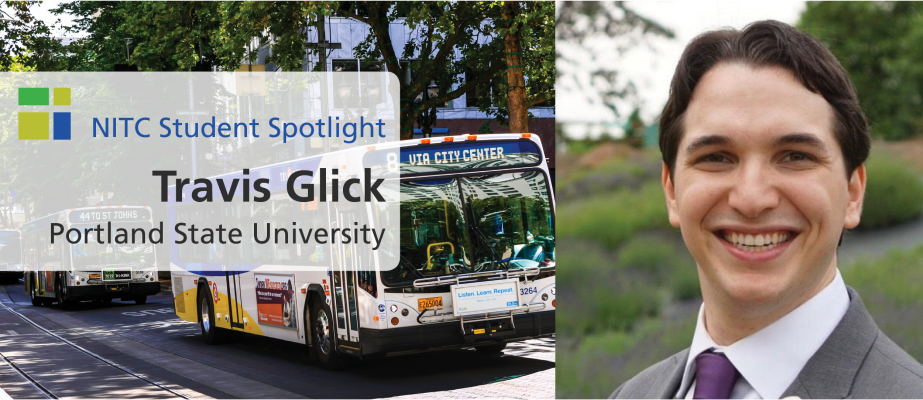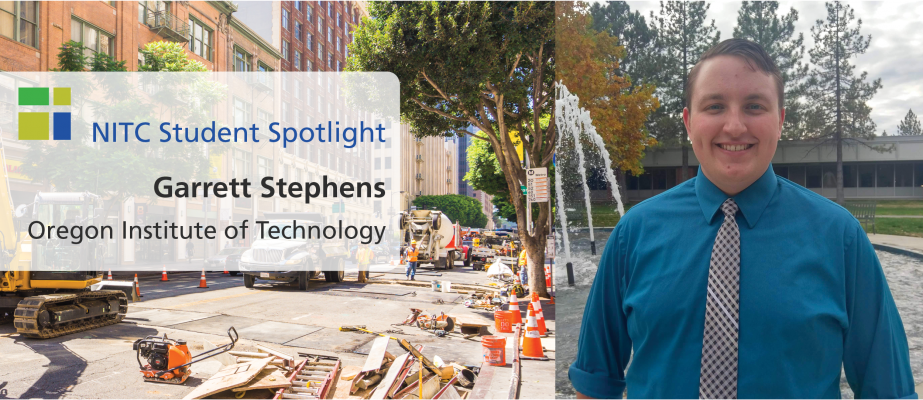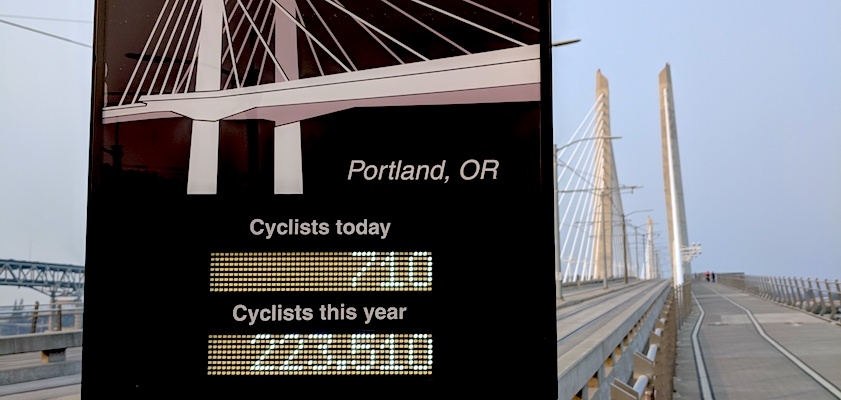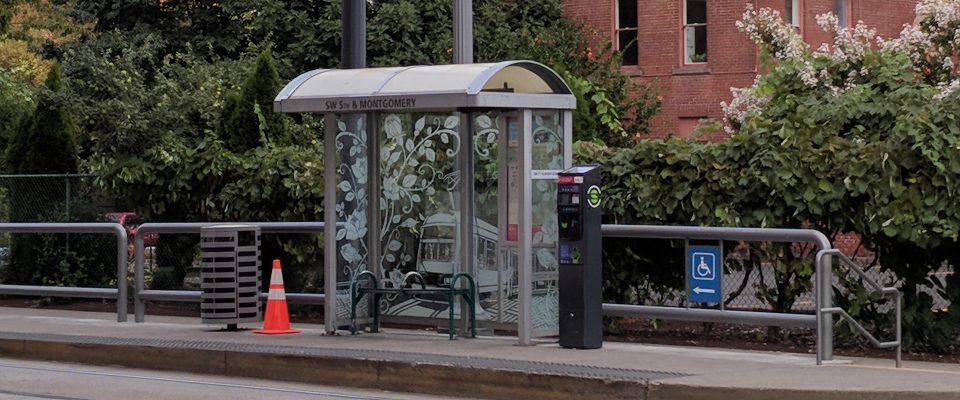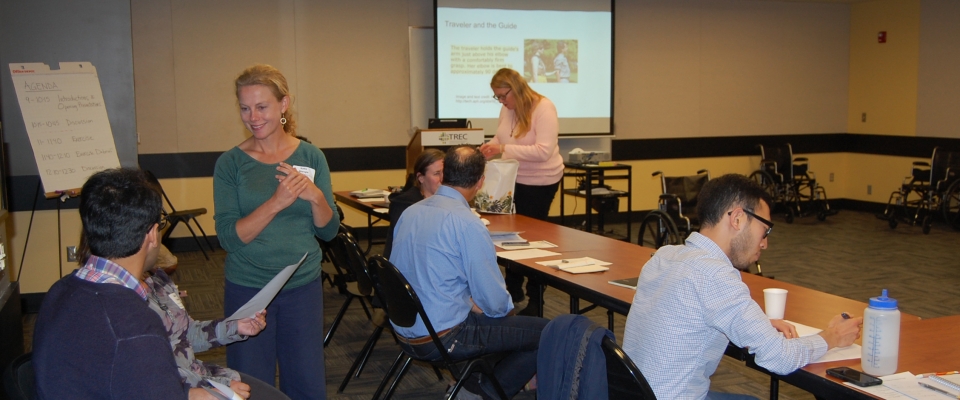The latest report from the National Institute for Transportation and Communities (NITC) offers recommendations to increase multimodal travel among youth in Portland, Oregon. Communications strategies derived from focus groups of middle-school aged Portland Public School (PPS) students are aimed at helping the Portland Bureau of Transportation and TriMet, the transit provider for the Portland metropolitan region, to engage more with young riders and encourage them to form lasting habits of car-free travel.
The research team chose to focus on seventh, eighth, and ninth grade students because they will soon be eligible for the free transit service provided by TriMet to all PPS high schoolers. Researchers wanted to focus on this critical decision-making stage to affect long-term behavior change towards opting for non-car travel....
Read moreTravis Glick, Portland State University
Travis Glick is a PhD student, graduate teaching and research assistant in civil & environmental engineering at Portland State University. He served for two years as president of Students in Transportation Engineering and Planning (STEP), Portland State University's transportation student group. Travis is a 2018 NITC student scholar and two-time Eisenhower fellow, and will be presenting research on bus dwell times, bus-bike conflicts and transit modeling at the 2019 annual meeting of the Transportation Research Board (TRB).
Tell us about yourself?
... Read moreThe latest report from The National Institute for Transportation & Communities (NITC) offers help to planners seeking to incorporate emerging travel modes—including car sharing, bike sharing, ride hailing, and autonomous vehicles—into regional travel demand models. More specifically, it brings these new travel modes into the Regional Strategic Planning Model (RSPM) tool. As more people start taking advantage of new...
Read moreGarrett Stephens, Oregon Institute of Technology
Garrett Stephens is Oregon Tech's 2018-19 ITE Student Chapter President and has held civil engineering internships at Kiewit and Lane County Public Works. He was interested in civil engineering from a young age, and has recently decided to pursue a graduate degree with a focus on transportation.
Tell us about yourself?
My name is Garrett Stephens and I am from the Clackamas/Damascus area outside of Portland, Oregon. Growing up, my family owned our own retail paint business where I worked when needed and developed a strong sense of ownership in anything I did. My college career started when I was 16 years old through an early college options program between the homeschool program I was enrolled in and Clackamas Community College. This program allowed me to really step out and develop leadership skills through the classes I took. Outside of academia, I am an avid outdoorsman and love all that Oregon has to offer.
What and/or who has most significantly influenced your path in transportation?
... Read moreThe latest Small Starts Grant projects, selected by NITC's executive committee, will explore equitable access to mobility options, communicating the applied value of GPS data to agencies, and transportation resiliency in natural disasters.
This annual NITC funding program is a unique opportunity to tackle small-scale ($20,000 or less in scope) research projects. In contrast to our larger, annual flagship program ($30–150K), Small Starts enables us to include researchers who:
- Bring a diverse, interdisciplinary perspective and may not have considered applying a transportation lens to their work before.
- Offer a new voice in the field, whether they’re untenured faculty or a researcher who has not received a NITC grant before.
- Seek to kick-start a larger project by first tackling an exploratory study smaller in scope.
THE NEW PROJECTS
The new projects represent a mix of topics and disciplines across our partner campuses, aimed at supporting and advancing mobility with a focus on creating equitable transportation options. These projects total $60,000 in funding for this round.
... Read moreBIKE/PED COUNT SURVEY: CALL FOR INPUT
Researchers at Portland State University, University of Texas at Arlington, University of North Carolina at Chapel Hill and Toole Design Group are conducting a scan to identify locations where bicycle counts are taking place around North America, and hope to enlist your help! If you collect bike count data (or oversee counts) in your jurisdiction, please consider taking our quick survey to tell us a little bit about your count locations and data.
The survey can be accessed here: tinyurl.com/BikeCounterScan
THE NEW PROJECT
... Read moreSocial marketing can be a useful transportation demand management (TDM) planning approach, to change people's travel behavior. A new NITC study led by Philip Winters and Amy Lester of the University of South Florida's Center for Urban Transportation Research (CUTR) explored a consumer...
Read moreMonica Landgrave-Serrano, University of Arizona
Monica Landgrave-Serrano is a planning masters student at the University of Arizona. She is a NITC student scholar, a TRB Minority Student Fellow, and is currently working as a planning intern with the City of Tucson and also as a graduate research assistant on the NITC-funded project "Access to Opportunities: Redefining Planning Methods and Measures for Disadvantaged Populations." She is the president of UA's Graduate Planning Society, and is helping to build connections with UA transportation students in civil engineering.
Tell us about yourself:
My name is Monica Landgrave-Serrano and I was born in...
Read moreThe success of public transportation depends upon public understanding of, and support for, livability. In response to new Oregon state requirements to significantly reduce greenhouse gas (GHG) emissions from light-duty vehicles, a team of University of Oregon (UO) researchers reviewed public communication strategies around transit investments. The overarching conclusion? The most effective framing of public transportation benefits is not around climate change, but rather on livability. Communication should focus on the benefits to people's pocketbooks, choices, health, and community. While this shift in approach has been marginally applied in Portland, a large gap in connecting...
Read moreWe held our annual flagship professional development event, Transportation & Communities, on September 13 and 14. In honor of the event's ten-year anniversary, we changed up the format: Rather than a typical conference with one-hour sessions and a keynote gathering, we offered a selection of intensive half-day workshops. See photos from the event.
The workshops gave practitioners a chance to take a deep dive into new skills in order to walk away with new tools or frameworks that could be applied to their work. We offered a review of congestion mitigation strategies, universal access and equity in pedestrian planning, and discussion on how smart technology could be implemented in suburban communities. Several workshops were based on findings from new research by the National Institute for...
Read more
